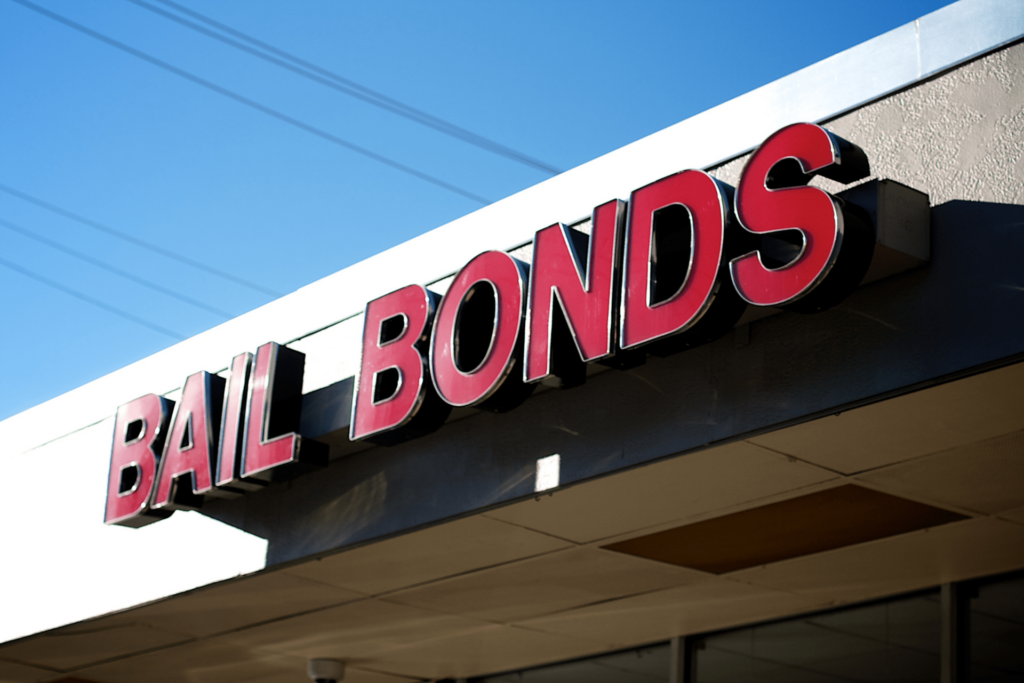The Real Benefits of Securing a bails bond Promptly
Understanding the Process of Safeguarding a Bail Bond: What You Required to Know
Safeguarding a bail bond can be a complicated procedure. It includes recognizing different aspects, from the sorts of bonds readily available to the associated costs. People usually forget essential information that can influence their scenario. The steps to get a bail bond need mindful factor to consider and expertise of duties. As the process unravels, important decisions have to be made that can affect the outcome greatly. What should one prepare for when traversing this challenging landscape?
What Is a Bail Bond?
A bail bond is a monetary arrangement that enables a detained person to be launched from wardship while waiting for trial. This setup entails a 3rd party, commonly a bondsman, who guarantees the court that the person will certainly return for their scheduled court appearances. In exchange for this service, the bondsman normally charges a non-refundable fee, frequently a portion of the overall Bail quantity.
Bail bonds serve an important feature in the legal system, providing a system for offenders to maintain their liberty during the pre-trial phase. This can aid them prepare for their defense better. The Bail amount is identified by the court based upon different variables, including the extent of the infraction, the accused's criminal background, and the risk of flight. Inevitably, a bail bond represents a commitment to maintain legal responsibilities while permitting people the possibility to continue their day-to-days live till their court date.
Exactly How Bail Bonds Work
Bail bonds run via a simple process that involves several key actions. Initially, a defendant or their depictive get in touches with a bail bond representative after an arrest. The agent assesses the circumstance, including the Bail amount established by the court and the defendant's background. As soon as a choice is made, the agent typically calls for a non-refundable charge, generally a percent of the total Bail amount, often ranging from 10% to 15%.
After the cost is paid, the representative safeguards the Bail by signing a contract with the court, ensuring that the accused appears for all set up court days. If the accused stops working to show up, the bail bond agent is liable for the full Bail amount, leading the agent to look for out the accused. Throughout this process, the bail bond representative plays an important function in facilitating the release of the offender while managing the associated monetary risks.
Kinds of Bail Bonds
Comprehending the various sorts of Bail bonds is necessary for defendants and their households as they navigate the legal system. There are a number of usual sorts of Bail bonds available, each serving a particular function.
The most prevalent is the surety bond, which includes a bondsman ensuring the full Bail quantity in exchange for a charge. An additional kind is the cash bond, where the accused or their family members pays the full Bail quantity in money straight to the court.
Home bonds allow individuals to use property as security for the Bail amount. In addition, federal bonds are details to federal cases, usually requiring a greater premium and more rigid conditions.
Lastly, migration bonds are used in cases worrying migration offenses. Each kind of bond has distinct treatments and implications, making it crucial for those involved to recognize their choices completely.
The Prices Associated With Securing a Bail Bond
Safeguarding a bail bond involves various costs that can considerably influence an accused's finances. The major expenditure is the costs, normally varying from 10% to 15% of the overall Bail quantity established by the court. This premium is non-refundable, despite the situation result, standing for the bail bond agent's charge for their solutions. Additional prices might include administrative fees, which some representatives enforce for handling documentation, and security needs, where the accused might need to provide possessions to safeguard the bond. In situations including greater Bail quantities, the requirement for security ends up being a lot more obvious. bail bonds. In addition, accuseds need to understand potential costs related to missed out on court dates, which can result in more punitive damages. Understanding these costs is necessary for accuseds and their family members, as they can significantly influence the financial concern connected with securing a bail bond
The Process of Acquiring a Bail Bond
The process of obtaining a bail bond includes a collection of organized actions that begin with the submission of an application. Candidates need to also take into consideration different payment and collateral alternatives that may be required by the bail bond agency. Understanding these parts is necessary for navigating through the bail bond system properly.
Application Submission Tips
When people are educated, steering the application entry steps for acquiring a bail bond can be simple. The initial action includes picking a reliable bail bond firm, which frequently requires research study and suggestions. Once a business is selected, the candidate has to complete a bail bond application, providing read more essential details such as the defendant's information, costs, and Bail amount. Next off, the applicant might require to present recognition and any kind of pertinent paperwork to support the application. After sending the application, the bail bond company will assess the information and analyze the risk included. An agent will outline the terms and conditions before finalizing the agreement if accepted. This procedure, while methodical, can vary slightly depending on the territory and the Bail bond firm.

Payment and Collateral Options
When getting a bail bond, understanding repayment and security alternatives is crucial, as these elements can greatly impact the overall expense and terms of the agreement. Normally, bail bond business need a non-refundable cost, normally a percentage of the total Bail amount, which acts as their earnings. Some companies might offer flexible repayment strategies, permitting customers to pay in installments. In addition, collateral can be required to safeguard the bond, which might include possessions like home, lorries, or other valuables. The kind and value of collateral can affect the bond's approval and terms. Customers ought to very carefully evaluate their monetary scenario and alternatives to guarantee they choose a service that aligns with their budget and situations.
Duties of the Indemnitor
Steering via the complexities of Bail bonds needs a clear understanding of the duties of the indemnitor. The indemnitor, typically a relative or buddy of the accused, plays a substantial role in the Bail procedure. This individual consents to think monetary obligation, making certain that the Bail amount is paid if the offender stops working to appear in court. It is crucial for the indemnitor to preserve communication with the bail bond agent throughout the process, offering any type of essential information and updates regarding the accused's circumstance.
In addition, the indemnitor must secure collateral, which may include building or valuables, to back the bail bond. This collateral protects the bail bond business against potential losses - bail bonds. Should the accused fall short to adhere to court mandates, the indemnitor faces the risk of losing their security and may be held accountable for the entire Bail amount. Because of this, comprehending these responsibilities is necessary for the indemnitor's monetary security

Usual Misconceptions Regarding Bail Bonds
Numerous individuals nurture mistaken beliefs about Bail bonds, which can complicate their understanding of the Bail procedure. One widespread myth is that Bail bonds are a form of settlement that assures an offender's release. In truth, they are an assurance to the court that the offender will certainly show up for their arranged hearings. An additional typical idea is that just affluent individuals can pay for Bail. Nevertheless, bondsman commonly bill a percentage of the complete Bail quantity, making it accessible to a broader series of people. In addition, some people assume that Bail is refundable. While the costs paid to the bondsman is not refundable, the Bail amount itself may be returned upon the completion of the case, supplied the defendant fulfills all court requirements. Resolving these myths is important for people traversing the complexities of the Bail system and ensuring they make notified decisions.
Often Asked Questions
Can I Secure a Bail Bond for A Person in One More State?
Protecting a bail bond for somebody in one more state is feasible, but it normally requires working with a Bail bondsman licensed because state - bail bonds. Each territory has details laws that need to be complied with during this process
What Occurs if the Accused Skips Bail?
If a defendant avoids Bail, a warrant is typically released for their apprehension. The bondsman might also seek recuperation initiatives, which could involve employing bounty hunters to nail the individual and situate.
Are Bail Bondsmen Controlled by the Government?
Bail bondsmen are without a doubt managed by federal government authorities. Rules differ by state, but they typically call for licensing, adherence to monetary methods, and compliance with laws to assure fair treatment of defendants and their households.
Can I Use Security Aside From Cash?
Collateral aside from money can typically be made use of for Bail bonds, relying on the bondsman's plans. Usual alternatives include property, cars, or other valuable possessions, which must generally be evaluated and set.
What Is the Duty of a Co-Signer in a Bail Bond?
If the defendant stops working to appear in court, the duty of a co-signer in a bail bond is to ensure settlement. This individual accepts financial obligation, guaranteeing that the bail bond agreement is maintained and enforceable.
If the defendant falls short to appear, the bail bond representative is accountable for the complete Bail amount, leading the representative to seek out the defendant. Once a company is selected, the candidate must complete a bail bond application, providing important details such as the offender's details, fees, and Bail quantity. Usually, bail bond firms need a non-refundable charge, generally a portion of the complete Bail amount, which offers as their revenue. Numerous people harbor misconceptions concerning Bail bonds, which can complicate their understanding of the Bail process. Collateral other than money can often be used for Bail bonds, depending on the Bail bondsman's policies.